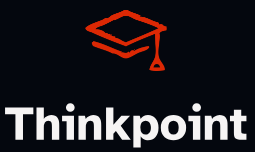In today’s fast-paced and competitive academic landscape, higher education institutions face a variety of challenges, from adapting to technological advancements to meeting the diverse needs of students. To navigate these complexities effectively, many universities and colleges are turning to educational consulting. Educational consultants provide expert advice and strategic support, playing a vital role in ensuring institutional success. In this blog, we’ll explore why educational consulting is crucial for the success of higher education institutions.
1. Enhancing Institutional Strategy
Educational consultants help universities and colleges develop long-term strategies that align with their goals and mission. Whether it’s expanding academic programs, improving student retention, or enhancing global outreach, consultants bring an outside perspective and specialized expertise to craft strategies that drive success.
Why It Matters:
By partnering with experienced consultants, institutions can identify new opportunities for growth, navigate market trends, and create a roadmap for future development. This strategic insight is essential for staying competitive in the ever-evolving world of higher education.
2. Improving Student Outcomes
One of the core functions of educational consulting is helping institutions enhance student success. This includes analyzing student performance data, identifying gaps in support services, and designing programs that promote academic achievement and personal growth.
Why It Matters:
Educational consultants provide actionable recommendations to improve graduation rates, student retention, and overall satisfaction. By implementing data-driven approaches, institutions can better support students throughout their academic journey, leading to improved outcomes and higher satisfaction levels.
3. Optimizing Operational Efficiency
Universities and colleges often face operational challenges, from managing resources to ensuring that administrative processes are efficient and effective. Educational consultants work with institutions to streamline operations, optimize resource allocation, and reduce inefficiencies.
Why It Matters:
Efficient operations allow higher education institutions to allocate more resources toward student services, faculty development, and academic programs. Consultants help institutions become more agile, enabling them to respond quickly to changing circumstances while maintaining high-quality education.
4. Adapting to Technological Change
The digital revolution has transformed higher education, introducing online learning platforms, digital assessments, and data analytics tools. Educational consultants assist institutions in integrating these technologies into their academic and administrative frameworks.
Why It Matters:
With expert guidance, institutions can adopt technology in ways that enhance both teaching and learning. Consultants provide insights into best practices for implementing online learning, using data analytics to track student progress, and utilizing digital tools to improve institutional efficiency.
5. Ensuring Accreditation and Compliance
Accreditation is a critical aspect of higher education, ensuring that institutions meet the necessary standards of quality and rigor. Educational consultants play a key role in guiding institutions through the accreditation process and ensuring compliance with regulations.
Why It Matters:
By working with consultants, institutions can navigate complex accreditation requirements, maintain academic integrity, and ensure continuous improvement in educational quality. This not only boosts an institution’s reputation but also guarantees that students receive a high standard of education.
6. Facilitating Institutional Change
Change is inevitable in higher education, whether it’s in response to shifting market demands, technological advancements, or internal challenges. Educational consultants act as change agents, helping institutions manage transitions smoothly.
Why It Matters:
With the support of consultants, institutions can effectively implement new initiatives, restructure departments, or launch innovative programs. This ensures that changes are sustainable and aligned with the institution’s goals, minimizing disruption while maximizing positive impact.
Conclusion
Educational consulting plays an essential role in shaping the success of higher education institutions. From enhancing strategy and improving student outcomes to optimizing operations and ensuring compliance, consultants provide the expertise needed to navigate today’s complex academic environment. By leveraging the knowledge and insights of educational consultants, institutions can achieve sustainable growth and deliver high-quality education that meets the needs of students, faculty, and the broader community.







